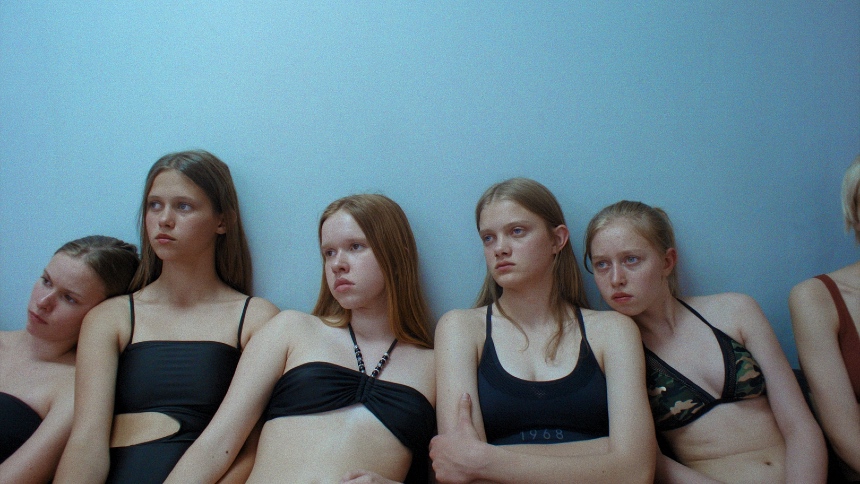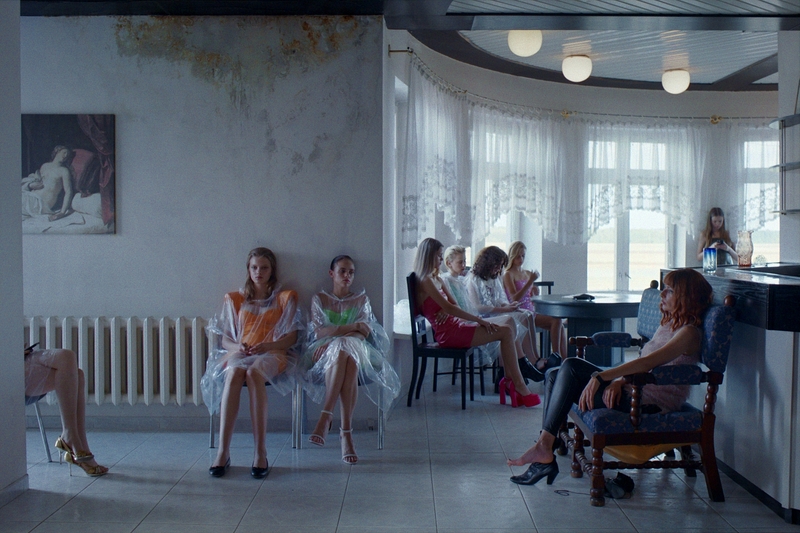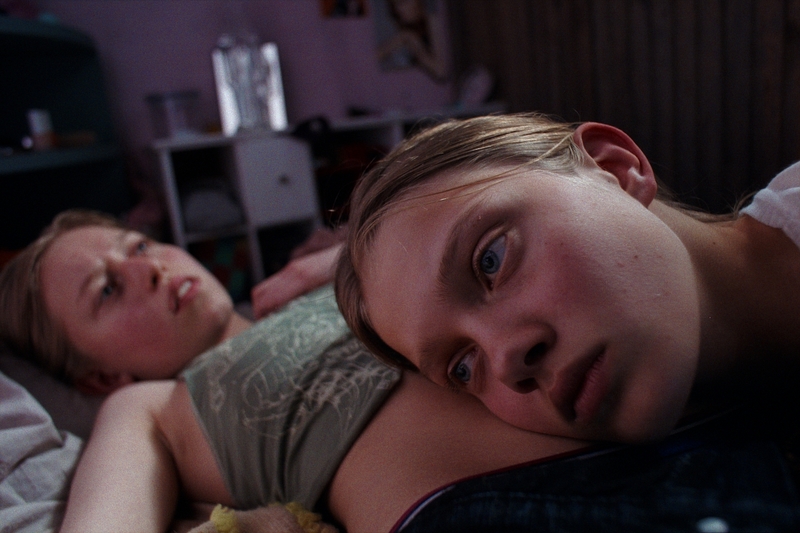Locarno 2024 Review: TOXIC Explores Teenage Turmoil Through Female Gaze
Saulė Bliuvaitė's debut feature offers a haunting exploration of adolescence, delving into the unsettling realities of growing up in an industrial wasteland where the body becomes both a battleground and a means of escape.

Lithuanian newcomer Saulė Bliuvaitė makes a compelling debut with her first feature film, Toxic, which premiered in the main competition.
The film explores the intersection of the human body as both a personal and societal construct, offering a visceral examination of adolescence, identity, and the harsh realities of growing up in econimically deprived environment.
Bliuvaitė, previously recognized for her award-winning short documentary Limousine and as co-writer of the historical drama Isaac, transitions into feature filmmaking with a distinctive voice. Her approach to storytelling is marked by an intertwining of personal and autobiographical elements. Toxic is inspired by her teenage years spent in an industrial environment, touching upon struggles to fit into the modeling world while confronting judgments about her body.
Set in a bleak industrial town, Toxic follows the fraught journey of 13-year-old Maria (Vesta Matulytė), who is forced to live with her grandmother. Upon her arrival, Maria becomes the target of unwanted attention—not just as the new girl, but as the new girl with a limp. An antagonism arises between Maria and Kristina (Ieva Rupeikaitė), a local, cocky 13-year-old firecracker .
A street brawl over a pair of jeans unexpectedly leads to a budding friendship, as Kristina compliments Maria's natural beauty and potential for modeling, despite her physical challenge. Kristina, already enrolled in a dubious modeling agency that preys on minors with promises of big money and travel to cities like Paris or Tokyo, offers a glimpse into a world of exploitation.
Bliuvaitė draws on the traditions of Eastern European social realist drama but shifts the focus from struggling families to teenage girls growing up without adequate adult oversight. The adults in this world are depicted as equally clueless and incompetent, struggling with their own lives in an environment offering little hope for the future. As a new-generation filmmaker, Bliuvaitė avoids the pitfalls of East-bloc "poverty porn," instead presenting a raw portrayal of a generation growing up in economic deprivation.
By conventional standards, Toxic is a coming-of-age drama and a generational statement. The film portrays a town where economic deprivation is the norm, and the local marketplace consists of ramshackle sheds where Kristina persuades a homeless man to buy them alcohol and cigarettes.
The plot centers on the girls' attempts to charm the modeling agency into giving them a life-changing opportunity. Bliuvaitė employs a fragmentary storytelling style, offering a snapshot of growing up in an environment where boredom dominates the lives of free-roaming children. In this sense, Toxic echoes Larry Clark’s Kids, reimagined through a female gaze in Eastern European makeup.
The film also examines the experiences of Generation Alpha, portraying children who, divorced from constant online distractions, find their escape from boredom outdoors. Bliuvaitė focuses on the girls' belief that modeling could be their ticket out of hardship, despite the sacrifices required.
Kristina, the more determined of the pair, resorts to extreme measures—such as ingesting black-market tapeworm eggs—to achieve the super-skinny figure she believes will secure her success. She even steps in when Maria, unable to pay the agency's application fee, hesitates to perform a “massage” for an elderly man, taking on the burden herself.
Toxic confronts difficult truths about body image, exploitation, and the search for identity against a backdrop of poverty. Bliuvaitė presents these themes with an unflinching gaze, capturing the young generation's struggles with a melancholic tone and occasional dark humor. The mundane takes on a surreal quality in Toxic, making for a hypnotic viewing experience.
The film's impact is amplified by the performances of its leads, Ieva Rupeikaitė and Vesta Matulytė. While Matulytė’s Maria remains grounded in reality, shy and insecure, Rupeikaitė’s Kristina is more daring, aware of how her body can be commodified. Kristina’s journey, marked by masochistic resolve, is both fascinating and disturbing to observe.
Toxic also boasts a strong visual identity, shaped by cinematographer Vytautas Katkus. The film’s raw and austere aesthetic, with a fixed camera and documentary-like harshness, recalls the poetics of Ulrich Seidl.
Katkus enhances the mundane with overhead angles. The washed-out colors reflect the melancholic mood, mirroring the protagonists’ inner turmoil and sense of suffocation in their dead-end town.
While Bliuvaitė allows her characters to cross the boundaries of childhood, she does so with a restraint that avoids graphic scenes, leaving the more disturbing elements to the viewer's imagination. However, at certain crucial moments, the camera cuts short, missing opportunities to push the envelope of discomfort further, which could have delivered a more effective gut punchy without resorting to exploitation.
Bliuvaitė taps into timely discussions about toxic beauty standards and the role of women, paralleling themes explored by Coralie Fargeat in The Substance. While Fargeat examines the end of beauty through an over-the-top body horror satire, Bliuvaitė focuses on its beginning, crafting a melancholic coming-of-age drama that borders on a docu-fiction hybrid. Despite their different approaches, both filmmakers address the female masochism inherent in striving for acceptance and an idea of success, within the constraints imposed by their respective realities.









-thumb-80x80-102438.png)